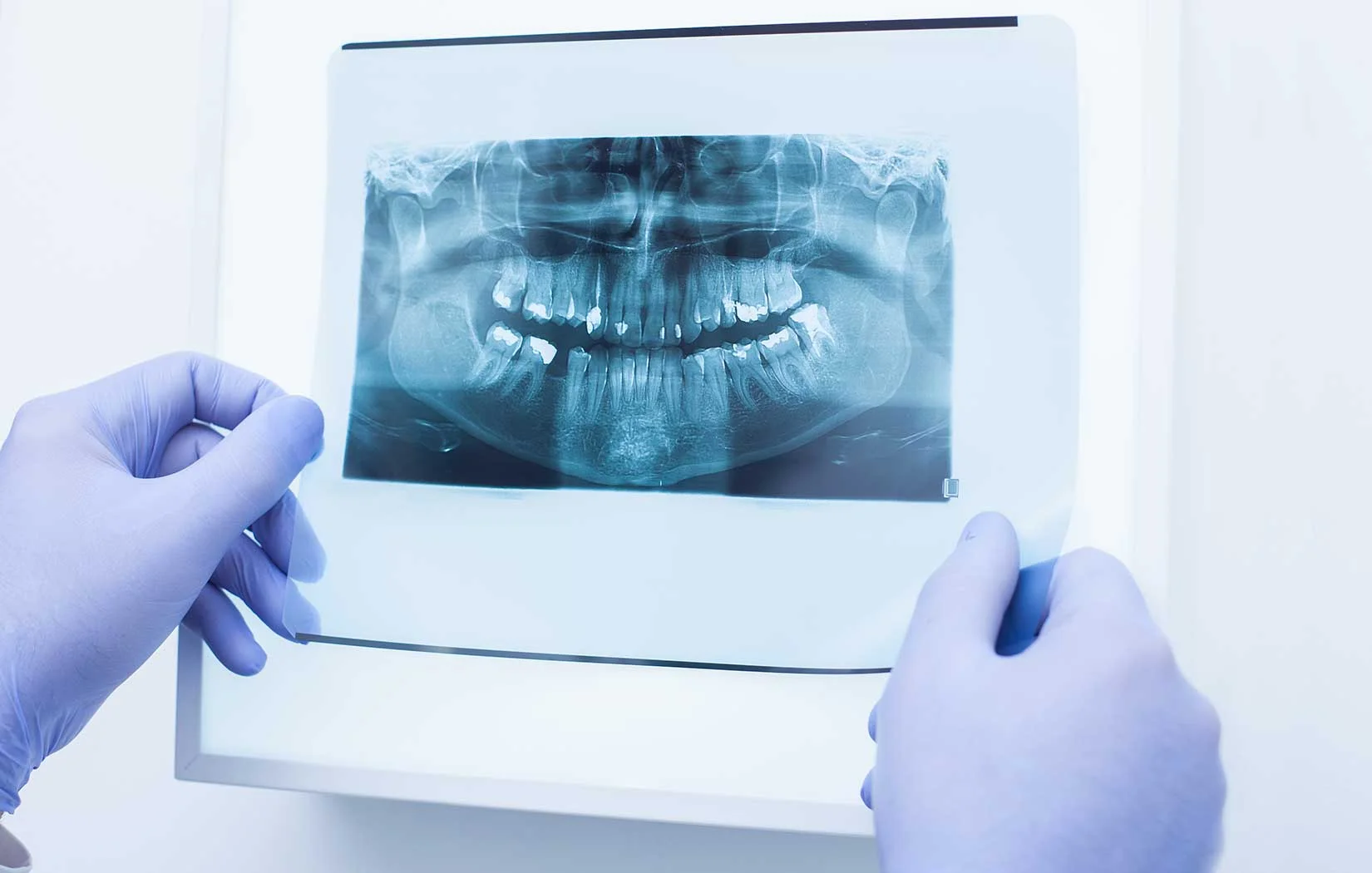Oral cancer includes cancers of the cheek, tongue, lips, hard and soft palate, the floor of the mouth, and throat. Like any other cancer, it is life-threatening if not detected and treated early. Our dentist in Brentwood is usually the first to discover you have it through oral cancer screening. This happens because the screening process is part of routine dental checkups.
Signs and Symptoms of Oral Cancer
- A growth on the mouth, neck, or face that bleeds easily and does not heal within two weeks.
- Velvety white, red, or speckled red and white patches in the mouth
- Rough spots, lumps, or crusts on the areas inside your mouth
- Ear pain
- Unexplained bleeding in the mouth
- Numbness or tenderness in areas of the mouth, neck, or face
- Chronic sore throat
- Difficulty moving your jaw to chew, speak or swallow
- Changes in the bite
- Rapid unexplained weight loss
The Oral Cancer Diagnosis Process
The dentist first updates your medical history when you go for your twice-annually dental exams. Next, they note any changes that may have occurred in the previous six months. These include those that increase oral cancer risk. Then, the dentist will start the screening by examining the areas inside and outside your mouth.
They will perform an intra-oral exam of the head, neck, cheeks, tongue, lips, mouth floor, gums, and palate. First, the expert will be looking for some signs of oral cancer highlighted above. Next, they will use their fingers to feel around the tissues in your mouth under the tongue, jaw, or chin. Finally, an oral cancer diagnosis will be performed if anything suspicious is found.
The dentist will perform comprehensive head and neck exams. They will use flexible fiber optic scopes or mirrors to look deep inside your neck. The expert will first anesthetize the back of your throat to make the exam easier. They may rinse your mouth with a blue dye highlighting any unusual cells in the mouth. It will help the expert detect suspicious tissues in the areas.
Next, the expert will remove some tissues from these areas to perform a biopsy. A brush or tissue biopsy will confirm whether oral cancer is present. Further tests such as x-rays, CT scans, PET scans, or MRI scans will follow. They help accurately determine the scope of infection.
Treatment Options Available for Oral Cancer
Treatments will begin once the oral cancer diagnosis confirms that you have the disease. The treatment provided will be based on the stage of the disease. The treatment options available for oral cancer include:
Radiation therapy
It involves directing radiation beams at the tumor to destroy the cancer cells. In addition, the expert may perform external-beam or internal radiation therapy to treat your oral cancer.
Chemotherapy
This is treatment with drugs that destroy the cancer cells. It keeps the cells from growing, dividing, and creating more cancerous cells. The medicine may be administered orally or intravenously, depending on the cancer stage.
Surgery
Surgery is the fastest and most effective way to treat cancer. It removes the cancerous tumor and some surrounding healthy tissue from the infected areas.
Nutrition
During cancer treatment, you may find it difficult to eat or swallow and have a poor appetite. The expert will alter your diet as part of the treatment. This enables your body to receive the necessary vitamins, calories, and minerals.
Lifestyle changes
Some lifestyle habits increase the risk of oral cancer and interfere with treatment. Therefore, the expert will ask you to change your lifestyle for effective treatment. These include tobacco use, heavy alcohol use, and significant sun exposure. In addition, the expert may ask you to do away with multiple sexual partners if your cancer is associated with HPV.
Keeping the mouth healthy
It is essential to maintain a healthy mouth during your oral cancer treatment. Your dentist will instruct you on how to keep your mouth moist and clean for successful treatment.
Contact us at Brentwood Dental Art for oral cancer screening near you. The dental experts will perform a diagnosis and refer you to a cancer specialist if the disease is found. In addition, they will help you maintain excellent dental health during your treatment.

